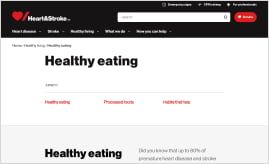

Helpful Resources
These resources provide valuable information on Repatha® and on cholesterol management that you can read on your own or discuss with your healthcare team.
Frequently Asked Questions
What is Repatha®?
Repatha® (evolocumab injection) is a medicine that helps to lower levels of cholesterol. Cholesterol is one of several fatty substances found in the bloodstream. Your total cholesterol is made up mainly of LDL cholesterol (LDL-C), often referred to as “bad” cholesterol, and HDL cholesterol (HDL-C), or “good” cholesterol.
LDL-C can build up in the walls of the arteries, forming plaque, which can lead to a narrowing of the arteries, slowing or blocking blood flow to vital organs such as the heart and brain. This can lead to a heart attack or stroke and could cause other health problems. HDL-C helps keep the bad cholesterol from building up in the arteries and protects against heart disease. Triglycerides, another type of fat found in the bloodstream, play an important role in the body but can increase the risk of heart disease if levels are too high.
Why have I been prescribed Repatha®?
Repatha® is used:
- along with diet and in combination with usual therapy, including cholesterol-lowering medications called statins, to reduce the risk of heart attack, stroke, and certain heart procedures (to restore blood flow to the heart) in adult patients who have cardiovascular disease by further lowering low-density lipoprotein (LDL) cholesterol.
- along with diet, alone or together with other cholesterol-lowering therapies, in adults with primary hyperlipidemia (high LDL cholesterol level in your blood) to reduce LDL cholesterol.
- along with diet and other cholesterol-lowering therapies, to reduce LDL cholesterol in people 10 years and older who need additional lowering of the high LDL cholesterol in their blood because of a condition that runs in their family (heterozygous familial hypercholesterolemia [HeFH]).
- along with diet and other cholesterol-lowering therapies, to reduce LDL cholesterol in people 10 years and older who need additional lowering of the high LDL cholesterol in their blood because of a condition that runs in their family (homozygous familial hypercholesterolemia [HoFH]).
You should stay on your cholesterol-lowering diet while taking this medicine.
How does Repatha® Work?
Evolocumab, the active ingredient of Repatha®, works by helping the liver’s ability to remove LDL-C, or “bad” cholesterol, from the blood. Evolocumab also lowers the level of the fatty substances called triglycerides, and raises the level of HDL-C, often referred to as “good” cholesterol.
How do I take Repatha®?
Repatha® is given as an injection just under the skin (subcutaneous, or SC). You can take Repatha® every two weeks with the 140 mg/mL single-use prefilled SureClick autoinjector, or once monthly with the 420 mg/3.5 mL (120 mg/mL) automated mini-doser.
It is important that you do not try to inject Repatha® until you have received training with a healthcare professional on how to properly use the SureClick autoinjector or the automated mini-doser.
If your doctor has prescribed Repatha® along with a statin or other cholesterol-lowering medicine, follow your doctor’s instructions on how to take these medicines together.
What is the usual dose of Repatha®?
For the prevention of cardiovascular events and primary hyperlipidemia in adult patients (including heterozygous familial hypercholesterolemia [HeFH] and atherosclerotic cardiovascular disease) and HeFH in pediatric patients (aged 10 years and older), the usual dose of Repatha® is 140 mg every 2 weeks or 420 mg once monthly.
For homozygous familial hypercholesterolemia in adult patients, the usual dose of Repatha® is 420 mg, either once monthly or every two weeks. If you are on apheresis you may initiate treatment with 420 mg every 2 weeks to correspond with your apheresis schedule.
Does Repatha® cause any side effects?
Like all medicines, Repatha® can cause side effects, although not everybody gets them. The following are not all the possible side effects you may have when taking Repatha®.
- Flu or flu-like symptoms (high temperature, sore throat, runny nose, cough and chills)
- Common cold, such as runny nose, sore throat or sinus infections (nasopharyngitis or upper respiratory tract infections)
- Nausea
- Back pain
- Joint pain (also known as arthralgia)
- Muscle pain (myalgia), with or without associated muscle weakness
- High blood sugar levels (diabetes)
- Injection site reactions (redness, bruising, pain, swelling or bleeding)
- Allergic reactions including rash, hives, red itchy bumps on your skin (urticaria) and, in rare cases, swelling of face, mouth, tongue or throat (angioedema)
If you have a troublesome symptom or side effect that is not listed here, or becomes bad enough to interfere with your daily activities, tell your healthcare professional.
Healthy diet and lifestyle resources

Patient Support Program
Learn more about the RepathaREADY® Support ProgramHDL-C=high-density lipoprotein cholesterol; LDL-C=low-density lipoprotein cholesterol
Please note: Your Repatha® package may be different from that shown.
Do you have questions?
Connect with the Amgen Canada Medical Information team for help by phone at 1-866-502-6436 or email at medinfocanada@amgen.com.






